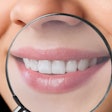Are teeth the latest potential victims of bisphenol A (BPA)? Yes, according to a new study by French researchers in the American Journal of Pathology (June 10, 2013).
The researchers found that the teeth of rats treated with low daily doses of BPA could be damaged. Analysis of the damage showed numerous characteristics that are common with a recently identified pathology of tooth enamel that affects roughly 18% of children between the ages of 6 and 8.
BPA is used in some dental sealants and also a number of consumer products and household items. Previous animal studies have associated BPA with breast and prostate cancers, as well as reproductive and behavioral abnormalities. In addition, some research has tied BPA to cardiovascular disease, miscarriage, decreased semen quality, and childhood behavioral issues.
This study showed that incisors of rats treated with low daily doses of BPA (5 micrograms/kg/day) could be damaged. Analysis of the rats' teeth showed numerous characteristics that are common with a tooth enamel pathology known as molar incisor hypomineralization (MIH) that selectively affects first molars and permanent incisors.
This enamel pathology is found in roughly 18% of children between the ages of 6 and 8. Children affected by this pathology present with teeth that are hypersensitive to pain and liable to caries. Interestingly, the period during which these teeth are formed (the first years of life) correspond to the period during which humans are most sensitive to BPA.
The researchers decided to define the characteristics of incisors of rats treated with low doses of BPA and compare these with the characteristics of teeth in humans suffering from MIH. Macroscopic observation of marks on both series of teeth showed similarities, in particular fragile and brittle enamel. Microscope observation of the enamel showed a significant reduction of the calcium-phosphorus (Ca/P) and the calcium-creatinine (Ca/C) ratios in affected teeth. This leads to mineral depletion, making the teeth more fragile and more liable to caries, the researchers noted.



















